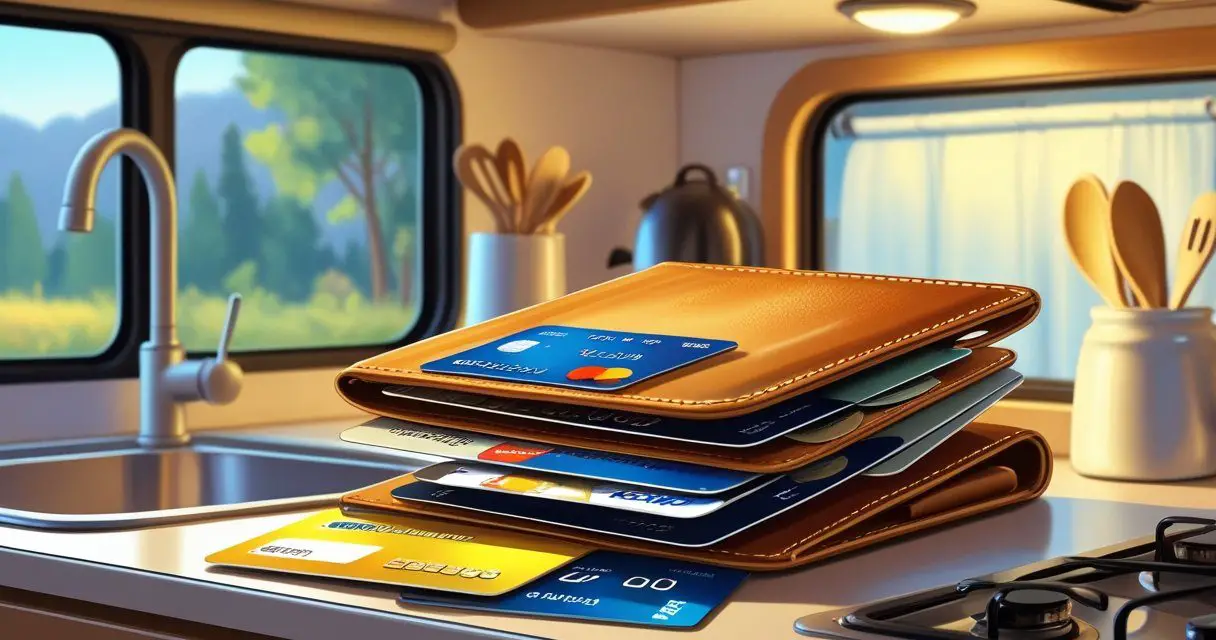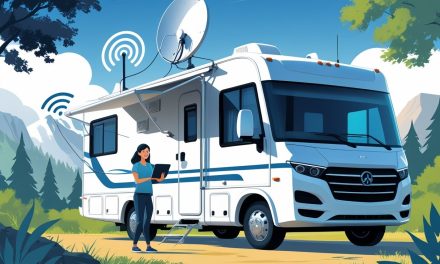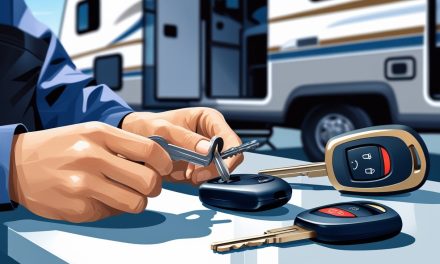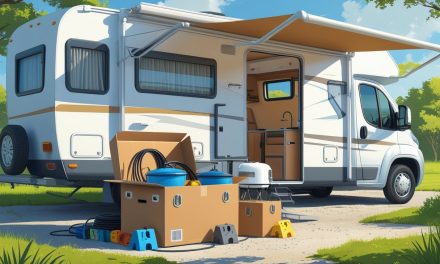Let’s face it, RV ownership isn’t all breathtaking sunsets and perfectly toasted marshmallows; sometimes, it’s a flat tire on a dusty backroad or a mysterious leak that appears directly over your favorite pillow.
We recently posed a crucial question to our newsletter subscribers, delving into the all-too-relatable topic of handling those unexpected RV expenses that have a knack for appearing at the most inopportune times.
We wanted to know your financial first-aid kit for when your home-on-wheels throws a costly tantrum. This vital intelligence was gathered exclusively from our fantastic community of readers who subscribe to our weekly newsletter.
If you’re not already signed up, make sure you do so you can vote in our next poll and have your voice heard in our future results and findings!
The results are in, and they paint a fascinating picture of fiscal bravery, optimism, and… well, plastic. Here’s how the votes broke down:
| Method for Handling Unexpected RV Expenses | Percentage of Votes |
|---|---|
| Emergency Fund | 20% |
| Credit Card | 60% |
| Insurance | 20% |
| Borrowing from Friends/Family | 0% |
Would you like to save this article?
The Plastic Fantastic Majority
A resounding 60% of you chose the “swipe now, worry later” method, also known as the trusty credit card. And honestly, we get it. When your refrigerator decides to quit in the middle of a desert, you’re not exactly going to calmly log into your savings account and transfer funds.
You’re going to frantically Google “nearest RV repair,” promise your firstborn for a same-day appointment, and hand over that piece of plastic with a confident smile that says, “Yes, I absolutely budgeted for a new compressor this month.” It’s the modern-day version of magic—a wave of the card makes the problem (temporarily) disappear! We salute your optimism and your excellent credit score (or your impressive ability to ignore the next statement).
The Prepared Patriots & The Policy Protectors
Tied for a very sensible second place at 20% each are the “Emergency Fund” savers and the “Insurance” claimants. The savers are the zen masters of the RV world. They heard a weird noise three states ago and have already mentally allocated funds from their “Unexpected Thingamajig Breaks” envelope.
We imagine them calmly sipping coffee while others panic, softly whispering, “I am prepared for this moment.” The insurance crew, on the other hand, are playing 4D chess. They read the fine print on their policy for fun and know exactly which clause covers a runaway awning or a squirrel invasion. Their first call isn’t to a mechanic—it’s to their agent, and they are not to be underestimated.
The “Absolutely Not” Zone
And then we have the option that received a whopping zero percent of the vote: borrowing from friends or family. Not a single soul opted for this path.
This is perhaps the most unanimous and understandable result of all. It seems we would all rather face a thousand repair bills than have to call Uncle Steve and endure a 45-minute lecture on fiscal responsibility before he reluctantly writes a check. The message is clear: our pride is more expensive than any RV repair.
We’d rather max out a credit card than max out our personal relationships, and that is a boundary we can all respect.
Conclusion: Why the Plastic Reigns Supreme
So, why did the credit card overwhelmingly win the day? In our opinion, it boils down to the immediate and often unpredictable nature of RV repairs. An emergency fund is fantastic, but building one large enough to cover major mechanical failures takes significant time and discipline.
Insurance is crucial, but it often comes with deductibles, specific claim procedures, and doesn’t cover every type of breakdown.
The credit card, for all its potential downsides, is instant, universal, and provides a crucial buffer. It’s the financial tool that’s always in your pocket when a crisis hits, allowing you to get back on the road immediately and deal with the consequences later.
It’s less about a lack of planning and more about the practical reality of managing a rolling house that has a mind of its own. It seems the true American pastime isn’t just road-tripping—it’s financing the trip one surprise repair at a time







